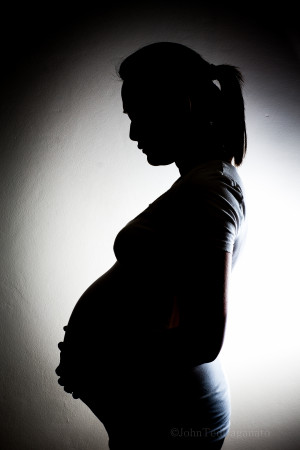EDITOR’S NOTE: Please see 8Asians’ previous coverage on the topic of anchor babies –Joz
I have covered quite a few stories about Chinese immigrants, and one of the biggest stories was the Chinese pregnant women going overseas to give birth so their babies can obtain a foreign citizenship, sometimes referred to as anchor babies.
America is one of the biggest markets for wealthy Chinese families who wants an America-born child. A couple of years ago, the controversy of these women and the local L.A. businesses that provided them housing and transportation had caused a big protest, following law enforcement cracking down some of the hotels. I recently talked to a Chinese mother who has two anchor children in Hong Kong and got a first personal glimpse of what life is like for them.
The mother that I talked to came from a rural village in China and lives under the poverty line. Like the U.S., Hong Kong also gives out birth citizenship. Hong Kong enjoys a high level of autonomy from China, and its provides a better welfare, education and more political freedom. Life for the low-income Chinese mother and their Hong Kong children is no fanfare. The child can’t go to public school in China because they don’t have a Chinese household registry, while they can’t claim Hong Kong government welfare because of their under age and the mainland status of their guardians. The mother and child live tightly on the support of their father working in the mainland, which is barely enough for the high living costs in Hong Kong. Financial struggles, long term family separation and discrimination from the Hong Kong society have left them in despair, desperation and depression. Many mothers have expressed suicidal thoughts.
These problems only emerge as the child go to school. The mother I talked to said if she knew there was such a hassle, she wouldn’t give birth in Hong Kong. Hong Kong opened its door to Chinese pregnant women in 2003, and after 11 years, as these anchor babies grow up, families are facing consequences they never anticipated at the time. Hong Kong has tightened its law and no longer allowed Chinese pregnant women to give birth at public hospitals, and the wealthy ones have now turned to the U.S.
I went into a few of the maternity hotels in Los Angeles last year under the guise of looking for a place for a Chinese friend coming to the U.S. to have a baby. The “hotels” are rental houses in residential areas, and people who run it are all Chinese, many don’t even speak English. They provided transportation, housing, meals, and house cleaning. They even drive the mothers to shopping malls, restaurants, and birth-giving workshops. The total costs, including hospital fees and tourism, can add up to more than $50,000, and they all pay in pure cash. Even one of the most prominent Chinese news anchors Chai Jing was spotted to give birth to a baby girl in the U.S. this year.
So why do all Chinese people, rich or poor, want to give a different nationality to their child? The first and foremost reason is the One-Child policy. Many of the anchor babies are the second or third child in the family. The Chinese government doesn’t punish families who have a foreign second child. Another reason that I heard was to give a better education for their children. The Chinese education is known to be fact-feeding creativity-killing test-based robotic learning. Even today, many Chinese parents are eager to send their kids to study in the western world. The number of Chinese international students in the U.S. have reached record high last year. Wealthy families in big cities like Beijing and Shanghai send their kids to learning centers as young as age 3 to make them learn English in hopes of sending them abroad to study one day.
It stirred a big outcry from the locals who said the Chinese are taking advantage of the immigration loopholes. Basically, they say the Chinese are cheating. But having a foreign child is not the fastest way for the parents to emigrate. In the U.S., the child has to reach age 21 to petition a green card for their parents. In Hong Kong, the child has to be over 18 and the parents be over 60.
Many Chinese, though, do sound like they want to get out of China. I went to the funeral of Cheng Chui Ping in Chinatown New York in May, the notorious snakehead queen. She was known for smuggling undocumented Chinese immigrants to the states, and died in prison because of cancer. At her funeral, the majority of Chinese immigrants I talked to said life in China was too difficult, and America is heaven.
For the child, is it a good thing? Remember, they still have to spend a significant amount of time growing up in China before they are sent to school in the U.S. or the countries their nationality belongs to. China does not recognize dual citizenships. They will be the first generation of Americans growing up in China, so where will they call home? One of the mothers said she just wants to give her child another option. Is the other option a bliss or a curse? We don’t choose where we are born and what kind of life we live before coming off age.
It’s going to be something very interesting to look out for.
photo credit: JohnD_22 via photopin cc
- Excited
- Fascinated
- Amused
- Disgusted
- Sad
- Angry









